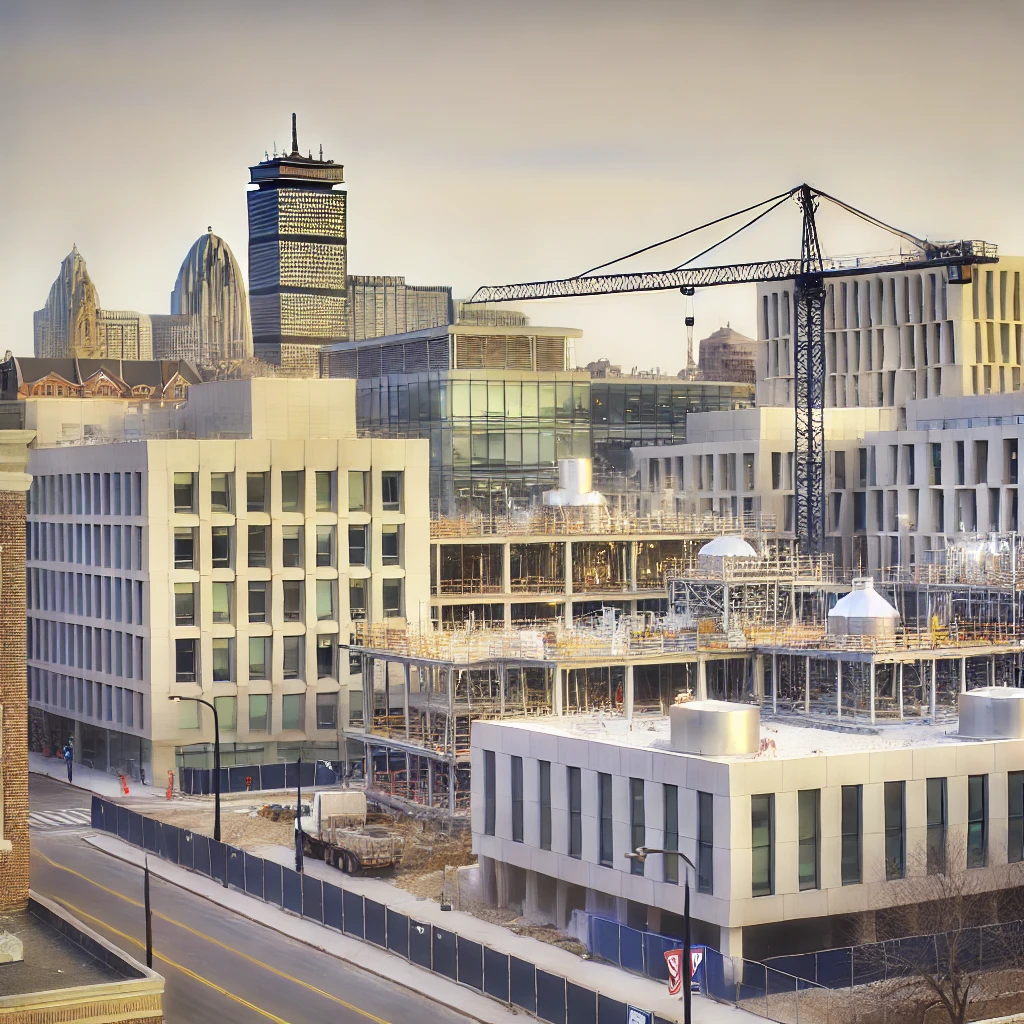The construction of several large laboratory projects in Boston’s Allston neighborhood has been put on hold due to a surplus of lab space and rising interest rates. These projects include a billion-dollar redevelopment of a former television studio into cutting-edge lab facilities. The slowdown is part of a broader trend in Boston’s booming life sciences industry, which has seen a temporary reduction in demand for lab space. However, Boston remains a vital hub for biotech, with its proximity to research institutions like Harvard and MIT ensuring the long-term growth of the industry.
Lab Development in Boston
Boston has long been a global center for the life sciences industry, housing some of the world’s most advanced research institutions and biotech companies. This has fueled a construction boom in lab spaces across the city, with developers rushing to meet demand. In recent years, however, the pace of lab construction has exceeded the immediate needs of biotech firms. Combined with rising interest rates, this has led developers to hit pause on certain projects, particularly in Allston, where some high-profile developments have been delayed.
Despite this temporary slowdown, Boston’s biotech sector remains robust. Experts point out that the oversupply is likely a short-term issue, as the long-term demand for lab space will continue to grow. Biotech companies are still investing heavily in research and development, and the industry’s reliance on proximity to top research universities, such as Harvard and MIT, makes Boston a key location for future expansion.
The Impact on Allston
Allston, a neighborhood known for its proximity to Harvard’s expanding campus, has become a focal point for lab development in recent years. Several large-scale projects, including the transformation of a television studio into modern labs, were expected to bring significant investment into the area. However, with developers pausing construction, the timeline for these developments has been extended. This has caused some uncertainty for local businesses and stakeholders who were anticipating the economic boost from these projects.
Despite the current pause, experts predict that lab construction will pick up again as the biotech sector continues to expand. The demand for space will likely increase as the industry recovers from its current lull, and Boston’s position as a life sciences leader will drive further development.
Broader Trends in Boston’s Life Sciences Industry
Boston’s life sciences industry has experienced rapid growth over the last decade, with the city becoming a global leader in biotech innovation. The proximity to world-renowned universities, research hospitals, and venture capital funding has made the city a magnet for startups and established companies alike. The life sciences sector is a key driver of Boston’s economy, employing tens of thousands of people and generating billions in revenue.
The temporary oversupply of lab space reflects a broader trend within the industry, where companies have shifted focus from building new facilities to prioritizing clinical research and product development. This has created a temporary pause in the demand for new lab space. However, as new drugs and therapies move through the pipeline, the need for state-of-the-art research and development facilities will grow again.
Future Outlook
The future of lab construction in Boston remains promising despite the current slowdown. As interest rates stabilize and demand for new lab space resumes, developers are expected to restart paused projects. Boston’s life sciences industry continues to attract global attention, and the city is well-positioned to maintain its role as a hub for biotech innovation.
The pause in construction may also provide an opportunity for developers and policymakers to reassess how best to accommodate the city’s continued growth. With the right investments in infrastructure and sustainable development, Boston’s lab space market will likely recover and thrive in the long term.



